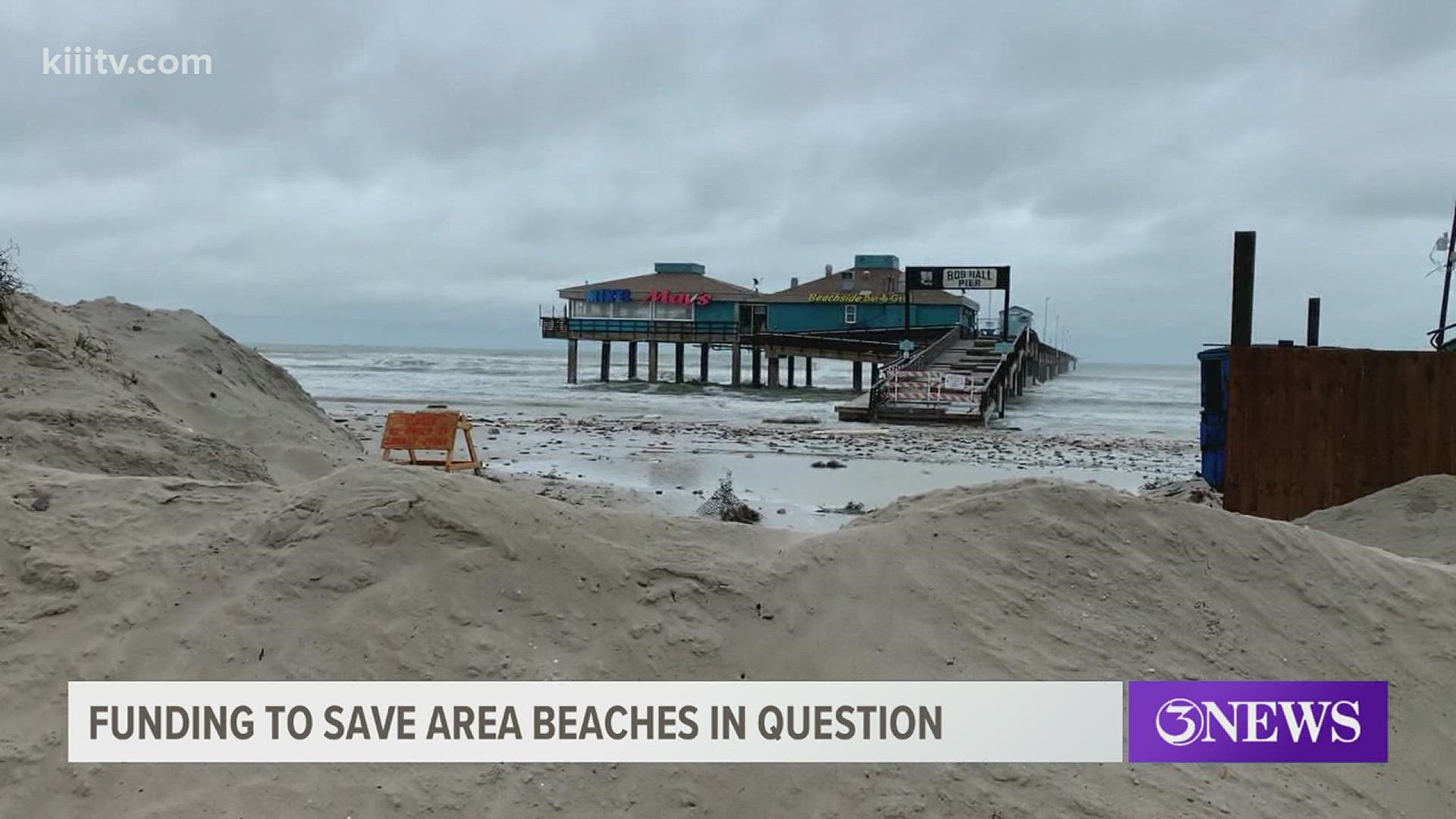CORPUS CHRISTI, Texas — The hurricanes which have hit the Coastal Bend over the past few years, along with rising sea levels, are being blamed for erosion along our coastline.
Beaches have eroded away so much that there is now a plan being proposed to bring in sand to widen a huge area from Fish Pass near Mustang Island State Park all the way past Bob Hall Pier.
County officials are working with the Army Corps of Engineers to begin the project as soon as possible. The first step is to fund a sand study to figure out where all the sand is going to come from.
Scott Cross, Nueces County Coastal Parks Director, is looking at the numbers to get the project started.
"We’ve committed to a 50-50 split, looks like about a $100,000 project and we’re committed to 50,000 of that,” Cross said.
“We’ve tried to get the city to come in to reduce our cost to 25, but it hasn’t been finalized yet, but we’re moving, we’re not waiting.”
The eroding coastline has been documented and studied by the Conrad Blucher Institute.
Cross said the county is looking to give more money to the Institute for more studies as the city has continued to reduce its funding efforts.
“They’ve taken hits here and there where their funding has been reduced and and it doesn’t make a lot of sense,” Cross said. “Because the data that they are collecting is very important to the constituents from the island, and they should want to know about what’s happening with our coastline.”
Interim Director of the Conrad Blucher Institute, Phillipe Tissot, said the project is necessary to track the effects of erosion in the Coastal Bend.
"It’s important to continue the monitoring,” Tissot said. “And to be careful and obviously things change you got a look at cost, but it’s important to have a regular type of monitoring so you have the continuity of it.”
City manager Peter Zanoni said the City is in talks with the Institute about renewing the annual contract they drew up for studying Packery Channel and beach erosion.
"We have not reduced any funding yet,” Zanoni said. “Annually, we buy a service from the Blucher Institute and annually once the funding runs out there’s a conversation with the city about what do you want to buy next so right now, we’re in that.”
Zanoni added that right now the city is spending about $160,000 annually with the Blucher Institute for its scientific studies.

